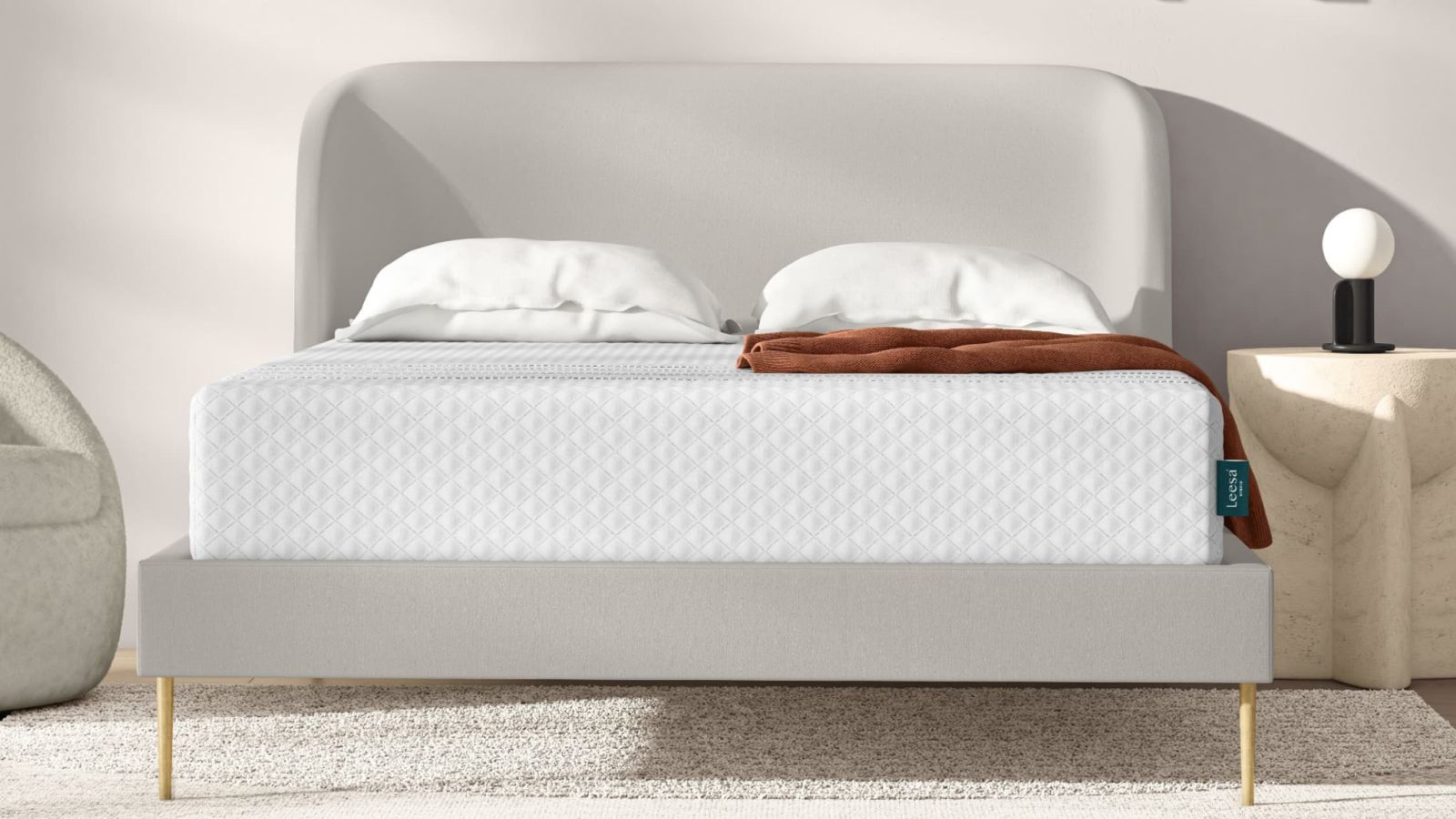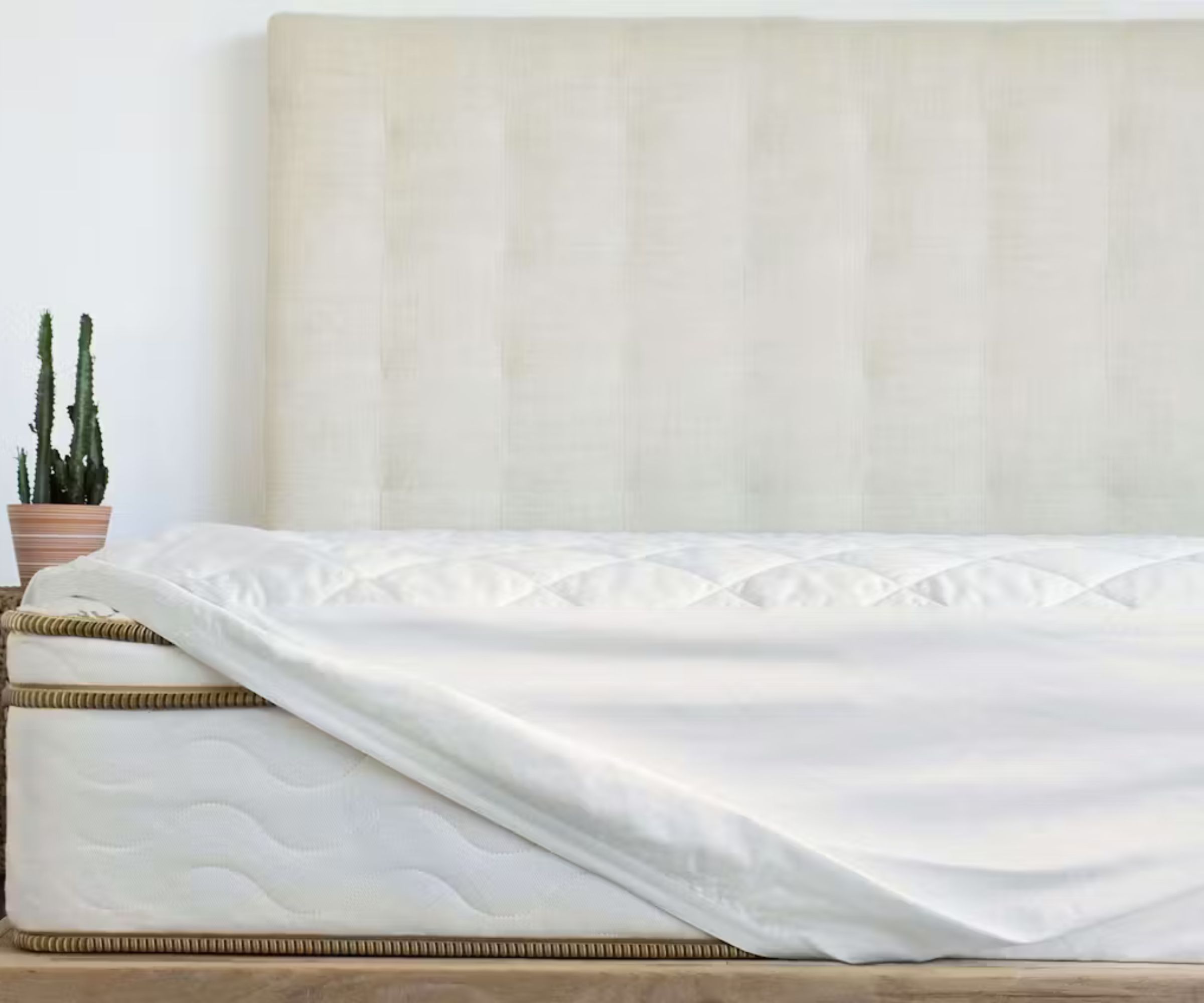
As H&G's resident sleep writer, I'm often asked: 'how long should a mattress last?' My short answer: somewhere between 7 and 10 years. The exact lifespan of your mattress depends on a whole host of factors, from the internal materials to the quality of your care.
I lead a team of expert testers in the search to find the world's best mattress. We score each mattress against the same criteria: comfort; support; breathability; and motion isolation; as well as a whole host of practical factors, from delivery details to the all-important price.
Within the first few months of sleeping on a mattress, we'll write and publish a mattress review, but we like to keep the mattress for more extensive testing. Some of our experts are still sleeping on the beds they started testing years ago. Our long-term testing approach has taught us how long you can expect a mattress to last. We've learned when to say goodbye to an aging mattress, but we've also picked up some tips and tricks to elongate its life.
How long should a mattress last?
A mattress is a major investment. When you're spending hundreds, or even thousands, of dollars on a mattress, you want to know that it will stand the test of time. I asked sleep scientist Jeff Kahn to talk us through the major mattress types in terms of durability.
How long should a mattress last?

- Innerspring: 'An innerspring mattress generally has the shortest lifespan, averaging around six to seven years,' says Jeff. 'The internal coils give the mattress its distinctive bounce, but they wear out with long-term use, starting to squeak and creak beneath your body weight.'
- Memory foam: 'Depending on the density of the foam, a memory foam mattress could last you anywhere between six to nine years,' says Jeff. 'The denser the foam, the more resilient the mattress, and the better it can withstand the regular pressure of your body weight.' Lower-density foam tends to incur indents and impressions, which leads to sagging and loss of support in certain areas of the mattress.
- Hybrid: Jeff says that 'a hybrid mattress, which combines an innerspring support system with the contouring comfort of memory foam, could last you up to 10 years.'
- Latex: a latex mattress is the most durable and sustainable model on the market. 'If you opt for natural latex, and take good care of your mattress, then you might not need to buy another for 20 years,' says Jeff. Most latex models come with a mattress warranty guaranteeing their quality for at least 10 to 12 years.
How can I make my mattress last longer?

- Get the best bed base: it doesn't matter how good your mattress is − if your bed slats are breaking or your base is bowing, then your mattress will start to deform. Still, with proper care, the best bed frame could last you decades, so there's no need to buy a new bed base every time you buy a new mattress.
- Turn your mattress regularly: you should flip or rotate your mattress at least once or twice a year. That way, you can distribute pressure more evenly across the mattress and avoid the sagging and loss of support that comes from always sleeping on the same section of the mattress. If you live alone, or you struggle to lift heavy weights, then I suggest you ask a friend or family member to come over and help you turn your mattress.
- Invest in the best mattress protector: a mattress protector acts as a barrier between your bed and your body, preventing the growth of mold, must, and mildew inside your mattress and stopping sweat, spills, and stains from seeping in. You can pick up a mattress protector from any of the specialist sleep stores for more or less $100. It's an invaluable bit of bedding and the best way to keep your mattress clean and dry.
This is Amazon's best-selling mattress protector, with more than 200,000 verified five-star reviews. In a particularly fulsome bit of praise, one customer claims that his wife went into labor on their mattress, but the SafeRest Premium Mattress Protector kept their bed clean and dry.
A mattress encasement is a special sort of mattress protector that wraps right the way around your mattress, covering the top, bottom, and all four sides. The SureGuard Mattress Encasement is built to bust dust, dirt, and dander, while guarding against spills and stains.
If you suffer from night sweats or hot flashes, or you just tend to run a little warm, then you should narrow the search to the best cooling mattress protectors. Made from Supima cotton, this lightweight layer is thermoregulating and moisture-wicking to keep you cool and dry.
How do I know when it's time to replace my mattress?

I've written an entire article answering the question: 'when should you buy a new mattress?' If you don't have time to read the whole thing, here are the highlights.
If you can't get comfortable, no matter how much you toss and turn, that's one of the signs you're sleeping on a bad mattress. If you're waking up with aches and pains, and you can feel lumps and bumps from deformed foam and springs, then it might be time to buy a new mattress. You need something with sufficient support to maintain the natural alignment of your spine and give your muscles space to relax and recover.
Final thoughts
If you know your mattress is nearing the end of its life, but you can't afford to buy a new one, then you could always invest in the best mattress topper, instead. One of these thick layers of foam could totally transform your sleep for a fraction of the price of a new mattress.







